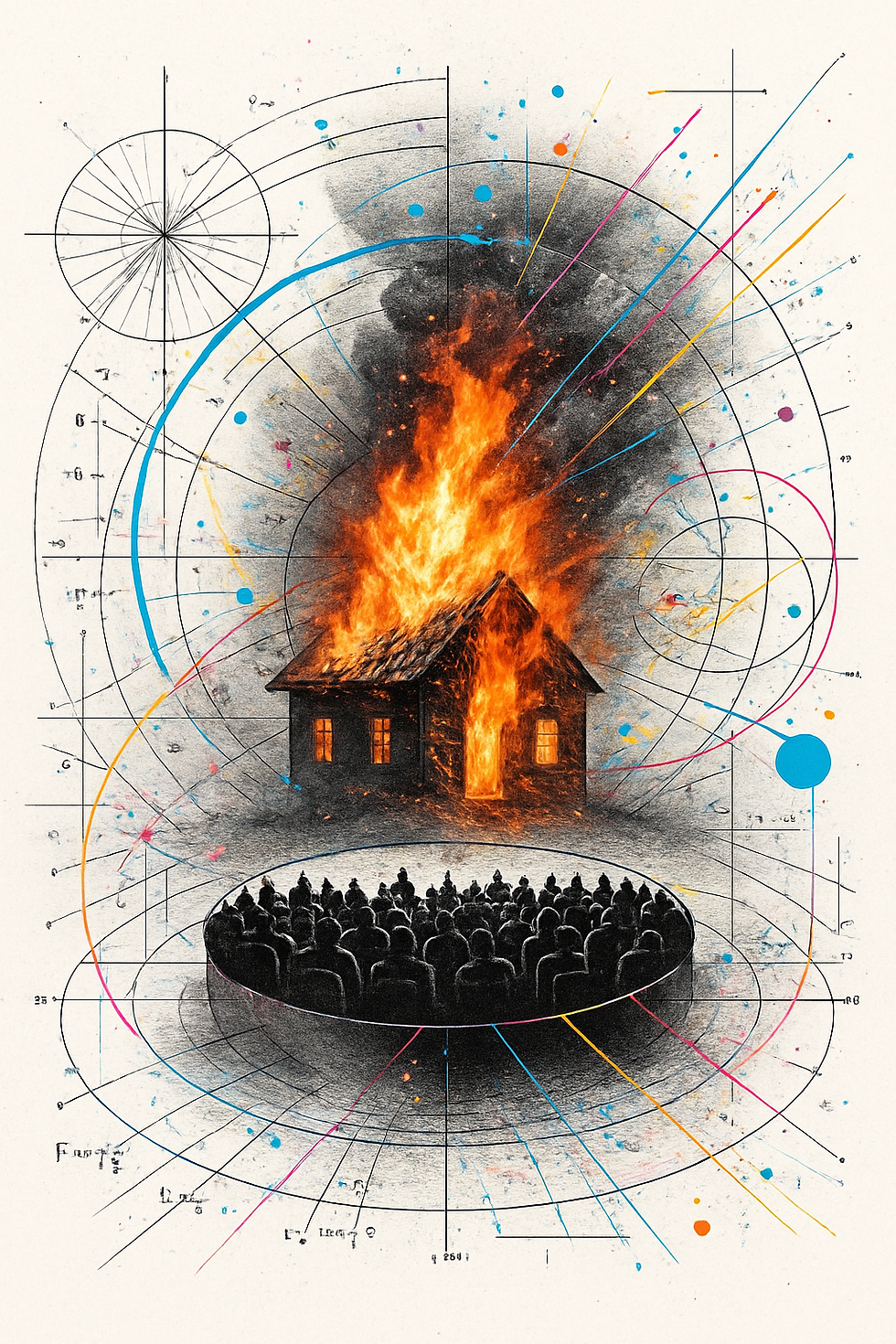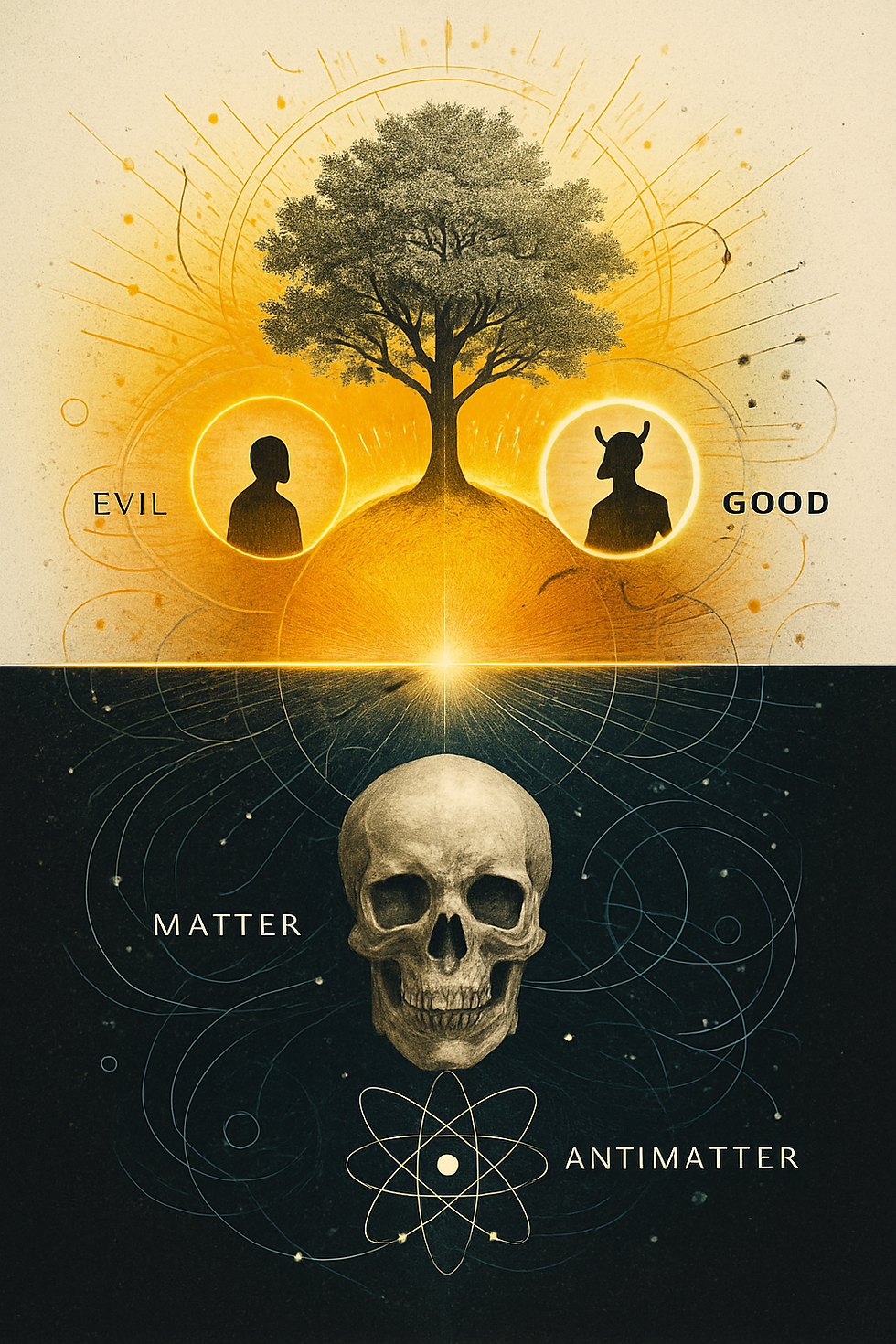Our Fascination with Tragedy
- rabie soubra
- Sep 26, 2025
- 3 min read
Shakespeare wrote 38 plays
Comedies, histories, and tragedies.
But which ones do we remember?
What plays have become global cultural iconic literary works?
What is the play that is mostly associated with shakespeare?
Romeo and Juliet.
Hamlet
Othello
King Lear
Macbeth
What are those?
Tragedies.
His comedies, clever as they were, wry as they were have largely faded from popular consciousness.
The Merchant of Venice and Much ado about nothing are probably up there, but not as popular as Romeo and Juliet.
This pattern extends far beyond Shakespeare, tragedy dominates our cultural memory in ways that seem to reveal something fundamental about human psychology.
We are drawn to stories of downfall and suffering with an intensity that should puzzle us more than it does.
Why do we choose to spend our limited time watching fictional characters destroy themselves and each other?
Why does the sight of Hamlet's madness or Romeo's fatal miscalculation move us more deeply than the wit of his comic characters finding love and happiness?
The answer might lie in what tragedy offers that we desperately need but rarely admit: permission to acknowledge the true harshness of life.
Most of our daily existence is spent in elaborate denial of life's fundamental harshness.
We construct routines, make plans, buy insurance, and tell ourselves that with enough effort and preparation, we can control our circumstances and secure our happiness.
We live as if tragedy is an aberration rather than an inevitability, as if suffering can be avoided through better choices or stronger willpower.
This denial requires enormous psychological energy to maintain.
We exhaust ourselves trying to believe that life is manageable, that good things happen to good people, that justice prevails, and that our efforts will be rewarded.
We work so hard to convince ourselves that we're in control that we almost start to believe it.
Then we encounter tragedy, on stage, in literature, in film, and something in us relaxes with recognition.
Here, finally, is an honest portrayal of what we've been trying so hard to ignore: that life contains forces beyond our control, that good people suffer for no reason, that love can destroy as easily as heal, that our best intentions can lead to our worst outcomes.
Tragedy serves as a reality check that cuts through our self-deception.
When we watch Othello destroy his marriage through jealousy, or see Lear lose everything through pride, we're confronting truths about human nature and the human condition that our daily optimism requires us to suppress.
These stories force us to acknowledge that we are all vulnerable to passion, error, circumstance, and mortality in ways that no amount of planning or wisdom can completely prevent.
But here's what makes tragedy bearable rather than devastating: we experience this confrontation with life's harshness from a position of temporary safety.
We can face the truth about our ultimate helplessness while sitting comfortably in a theater or reading in our living room.
Tragedy lets us practice accepting life's fundamental difficulty without currently being destroyed by it.
This creates a strange form of comfort.
There's relief in finally admitting what we've been denying, that yes, life is hard
Yes, we are vulnerable
Yes, terrible things happen to good people
And yes, we are all ultimately helpless against forces larger than ourselves.
But we can acknowledge these truths knowing that, at this very moment, we are still standing.
We are still here, still capable of being moved by art, still able to feel compassion for fictional characters.
Our suffering gains dignity when placed alongside the sufferings of kings and lovers and heroes.
Perhaps we love tragedy because it allows us to rehearse acceptance.
In a world that demands relentless optimism and constant striving, tragedy gives us permission to acknowledge that sometimes people lose, sometimes love fails, sometimes good intentions lead to destruction, and sometimes there is no happy ending.
We leave the theater or close the book having practiced the hardest human skill: accepting what cannot be changed.
Tragedy endures because it tells the truth we spend most of our lives trying to avoid, and somehow, in the telling, makes that truth bearable.






Comments